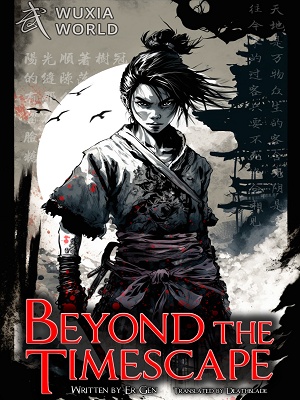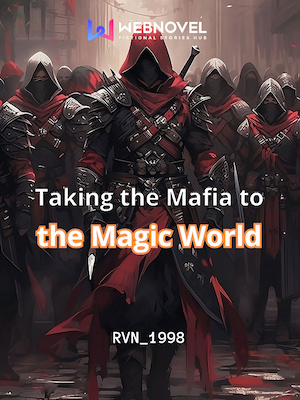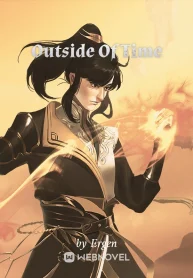Chapter 127: The Turning Point
It took Robespierre the entire night to prepare his speech, in which he listed the names of Fouche and over a dozen other members of parliament secretly associated with him. These were the individuals who would soon lose their parliamentary status and find themselves on the guillotine the following morning.
With everything in place, Robespierre retired to his bed. Days of anxiety and internal conflicts within his camp had taken a toll on his health, causing frequent, severe coughing spells. Robespierre had consulted a few reliable doctors who all concurred that his ailment stemmed from a lack of rest. They assured him that with proper rest, in conjunction with the prescribed medication, he would recover. But how could he rest at a time like this? Fortunately, the crucial battle was tomorrow. Perhaps afterward, he could finally find some respite.
On the same night, Fouche and his family embarked on a mission to visit parliament members, not just a dozen, but nearly all except Robespierre and his most loyal supporters. During those days, Fouche informed them that the "Prairial Decree" had been crafted with them in mind. He explained that Robespierre had executed more people in the past month than in the previous year, and at this rate, it wouldn't be long before they too faced the guillotine. He emphasized that Paris' food supply could no longer sustain current economic policies, and unless they were purged and their assets seized, Paris would soon go bankrupt.
Every parliament member listened with dread to Fouche's words, paralyzed with fear. These seasoned politicians knew that while Fouche's claim of "your name is on the next list" might be a bluff, they were well aware that Paris's food supply was indeed in dire straits. They also understood that in this situation, beheading and asset confiscation were virtually Robespierre's only means to navigate the crisis.
Moreover, they recognized the vast divide between Paris and the provinces and the severity of the food shortage in the capital. The former indicated that food scarcity wasn't a short-term problem, and the latter implied that the number of heads to be severed would be exceptionally high.
Even if their own names were not on Fouche's alleged "next list," there was a high probability they'd be on a list sooner or later, as long as reason prevailed.Visit no(v)eLb(i)n.com for the best novel reading experience
"The final battle is upon us!" Fouche would say as he bid farewell to each parliament member.
The next morning, accompanied by Saint-Just, Robespierre arrived at the National Convention.
Robespierre first applied for permission to speak, which was naturally granted. He ascended the podium, dressed in his customary sky-blue coat and white knee-high stockings, holding a lengthy scroll his prepared speech.
As Robespierre stood at the podium, he unfolded the scroll with the solemnity of a Roman magistrate unrolling his fasces. All eyes fixated on the parchment, knowing that any name it bore meant an invitation to the guillotine.
Robespierre noted that Fouche was absent. Fouche wasn't known for his oratory skills, especially when compared to the parliament members, so he often avoided such public gatherings whenever possible. Even when attendance was mandatory, he sought the least conspicuous corner.
Robespierre commenced his speech, which, for unrelated listeners, might have induced slumber. But on this occasion, everyone was captivated by his words. He discussed the dire domestic and international situations, the conspiracies of certain traitors to the revolution, and concluded by stating that he possessed a list of republic traitors who followed a shameful serpent, undermining the republic. Here, he paused deliberately, allowing the fear to settle within the hearts of the assembly.
All eyes were fixed on Robespierre, but he saw something different from before in those gazes. Alongside fear, he detected despair and madness.
"So, who is this serpent?" Suddenly, a trembling voice asked. It was Bourdon de l'Oise. A few nights earlier, Fouche had visited him.
"Yes, who is the serpent? Speak his name!" others joined in.
Robespierre realized that he had miscalculated. Instead of a mere ten or twenty conspirators, it seemed almost the entire Convention was implicated in Fouche's web. At this moment, revealing Fouche's name would mean condemning nearly all parliament members to the guillotine.
As Barere shouted, he raised his hand.
More hands followed, and eventually, nearly everyone raised their hands.
Facing the forest of raised arms, Barere exclaimed, "It's passed! It's passed!"
"Lock them up, imprison them!" more people shouted.
Suddenly, the individuals who had been paralyzed with fear by Robespierre moments earlier were now turning him into a prisoner. It felt like a surreal dream to everyone.
It wasn't until nearly an hour later that Fouche learned of the events in the Convention. The nightmare that had loomed over him for so long was now imprisoned, awaiting trial by the Revolutionary Tribunal and the guillotine the next morning.
"In which prison are they held?" Fouche inquired.
"They are in the nearest one, the Luxembourg Prison," came the reply.
"That's terrible! The security at Luxembourg is quite lax. Robespierre's allies will" Fouche began, alarmed.
"Well, that's perfect. We can round them all up!" another voice chimed in. Fouche turned to see Barere and Carnot, brimming with determination.
As they expected, Robespierre's allies launched an assault on the prison, rescuing Robespierre, Saint-Just, and others. They sought refuge in the City Hall where the Paris Commune was based, issuing orders to the National Guard to defend the revolution.
However, only troops from a couple of districts answered the call, joining them near City Hall. In contrast, more forces were gathering at the National Convention. Robespierre could only hope for reinforcements from more distant districts.
But by around 10 p.m., no other troops had arrived, indicating there would be no further reinforcements. Even the National Guards who had been stationed near City Hall began dispersing.
Around 11 p.m., the National Convention's forces initiated an assault on City Hall. The National Guards near City Hall refrained from firing a single shot and scattered. Even the cannons, loaded with shells, were abandoned. Loyalists to the National Convention used these cannons to break down the doors of City Hall.
Robespierre tried to take his own life, but a soldier first wounded his arm. This injury caused his shot towards his own head to miss, hitting his face instead. His face was shattered, but he didn't die.
The next morning, without any trial, Robespierre, Saint-Just, Couthon, and over twenty others were transported to the same guillotine that Louis XVI, Marie Antoinette, Danton, and Desmoulins had ascended.







